Pi in a Gameboy Advance Build - WIP
-
@obsidianspider
I wonder if that WiFi dongle isn't getting enough power in your Pi Zero setup. Is this running off a battery or a phone charger cable? Maybe test it with the same charger you use for your Pi2 to see if it works correctly? -
@backstander I'm doing everything with the 2A wall wart that I've been running a Pi 2 and Pi 3 with. I haven't gotten into battery stuff yet.
-
@obsidianspider
Looks like you ruled out power :-)What about the microUSB to USB 2.0 adapter you're using. Is there another one you can test with?
-
@backstander It's actually the female end of the USB-A wire that I used in my Super Famicom project and it's soldered directly to the power test pads on the Zero and the data pads, so it's bypassing the USB power circuit entirely and is getting power directly from the input.
It seems to conk out when under heavy CPU load. For example, I had a SNES game running and then I SSH'd in and went into the configuration menu and wanted to lower the volume through the ALSA mixer (I haven't connected the volume wheel or separate headphone plug yet) and when I was exiting out the game slowed down and then the wifi dongle's light went out, and wouldn't come back on.
I've read some things about looking to see if the wifi is connected and then telling the Pi to power down and power on wlan0 via a cron job, but I'm not sure what that will do when the dongle isn't plugged in, or how much it'd slow things down if it is plugged in if it wants to ping something a few times to test for connectivity. When I SSH in when a game is playing, the Pi struggles, even just during that initial connection where you get all the stats and such.
-
It's actually the female end of the USB-A wire that I used in my Super Famicom project and it's soldered directly to the power test pads on the Zero and the data pads, so it's bypassing the USB power circuit entirely and is getting power directly from the input.
That seams like it would get enough power unless maybe the ground needs a higher gauge? idk...
It seems to conk out when under heavy CPU load.
I'm not sure how the Pi Zero works vs the Pi3. As long as it's not getting super hot, I can't think of anything else to try.
-
@backstander Yeah, it's super frustrating. I'm only using the Zero for space reasons, if a 3 would fit, I'd be all about it. Sadly, even if I remove all of the ports and such there won't be enough room in the GBA case :-/
-
@obsidianspider if you use just the wifi dongle in an OTG cable on its own does it behave better?
-
@moosepr Just when I thought it would, it cut out. :-/ I don't understand it. I know people have said the Zero is touchy, but apparently mine needs a hug or something.
-
@obsidianspider that is really odd! I haven't had any issues on mine, but then I have only used it for short periods (although that does include running on li-po voltage) 😞
-
@moosepr As a gaming device, the Zero works fine. It's just the wonky Wifi. I also have zero problems with my Zero that I have hard wired and acting as a Pi-Hole. I just SSH'd to it and it's been up for over 58 days.
$ uptime 14:23:58 up 58 days, 13:42, 1 user, load average: 0.00, 0.00, 0.00 -
I'm fighting a cold, so I didn't make a ton of progress today, but I managed to take some solid core ribbon cable and use it to solder to test pads on the Gameboy Advance and DS Lite boards and then connect them up to the Pi to test it, and…
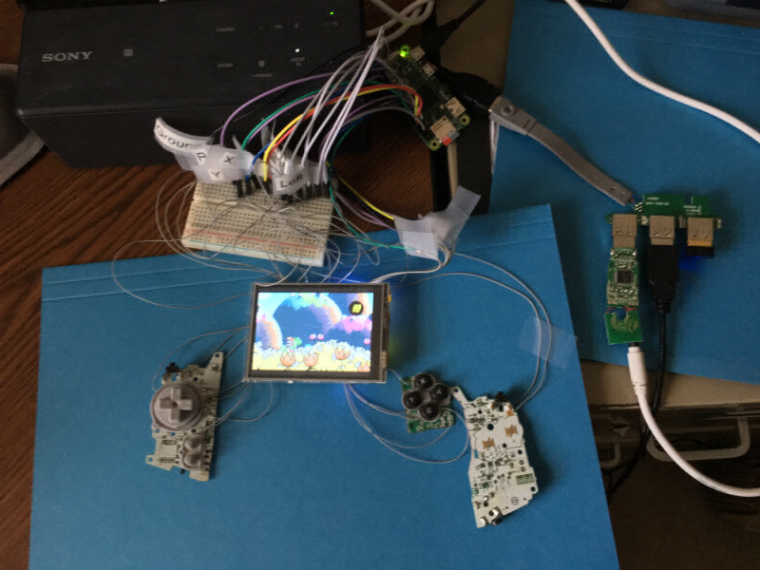
It works!
Cable management is going to be a challenge, and I'm not certain I won't redo some of the solder joints, but everything registers and all the buttons show up, and nothing lit on fire.
I then took the boards and buttons and put them in the Gameboy Advance case just to try playing something, and while the Start button seemed wonky (not sure if something came loose on the breadboard, or what) but with the ABXY taped to the front of the case it was really comfortable to play.
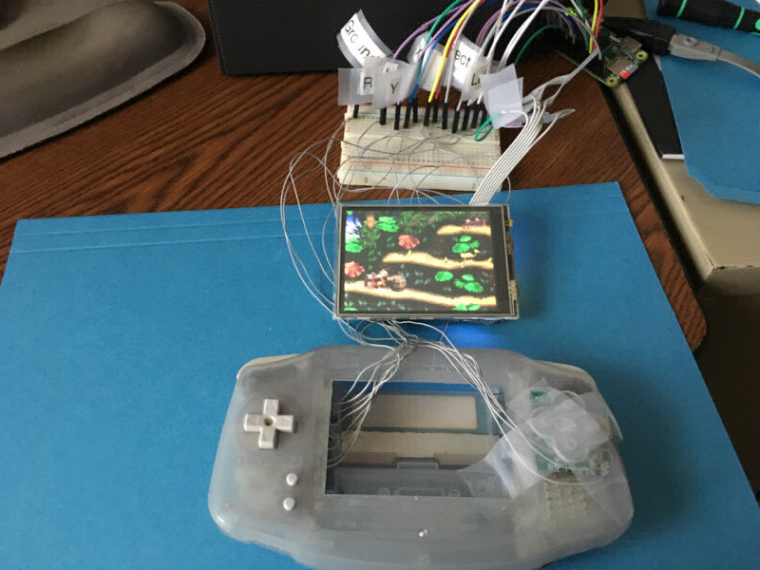
The next step is going to commit to the frankencase and graft in the ABXY area from the DS Lite into the Gameboy Advance case. I need to find something to practice with, because I don't want to mess this up. Yes, they make replacement cases, but I'd rather not buy extras because I made a horrible mess. If anyone has any tips for plastic joinery goodness to share, please let me know.
-
@obsidianspider I had forgotten you were tacking the NDS buttons in there. Maybe @Sephiros can help with hints and tips. He looks to know his way round frankencasing
-
After experimentation with some corrugated cardboard. I think I'm going to try changing course a bit. It may not work, but we'll see.
I spent a few hours in the garage today interspersed with some "testing sessions" cough playing StarFox cough, and while it's not done, things are looking promising...
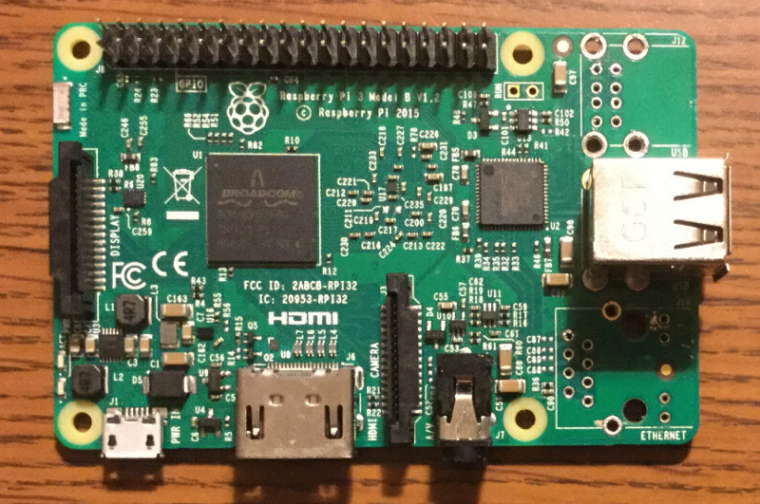
-
-
Excited by the fact that I didn't break it when I removed the Ethernet port and one of the USB connectors I decided to try removing the display connector this morning before work. I managed to mangle the connector, but it's removed and the Pi still works. I'll be testing after I remove each component to make sure I don't break it, or if I did break it, where I broke it, so I can try to fix whatever I messed up. (Don't worry, I won't be boring you with a shot of the Pi as each component disappears.) The resistors and capacitor near the display connector had me worried for a bit when some solder blobbed on them.
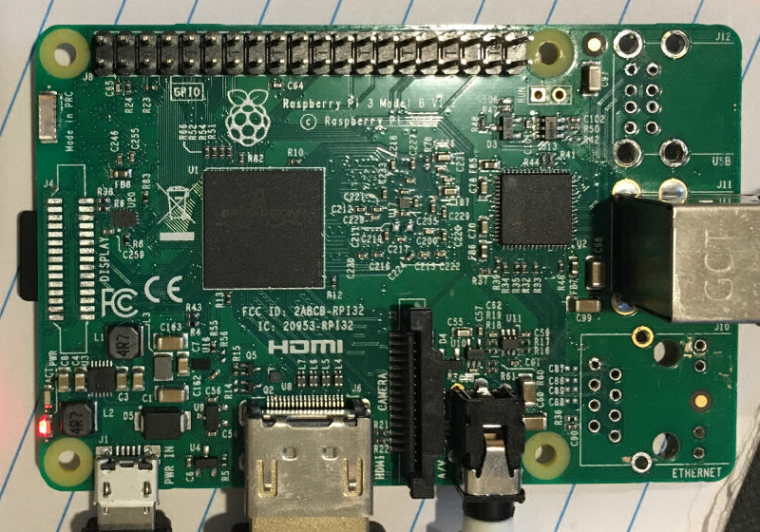
-
(Don't worry, I won't be boring you with a shot of the Pi as each component disappears.)
You should make an animated GIF of each component disappearing ;-)
-
@obsidianspider i found this and thought of you
-
@moosepr Awesome! I've seen a few guides here and there and this will be helpful. I'm also trying to save the bits I cut from the inside of the case to use as a base for gluing things together.
Also: Removing the HDMI port SUCKED. The surface mount plus through hole pegs were too much to heat at once, and I got impatient. I ended up tearing a bunch of traces, and actually melted the L4 resister into oblivion. Thankfully though, due to an X-Ray of a Pi 3 that I found, those resistors are just for HDMI, so it was OK to remove completely.
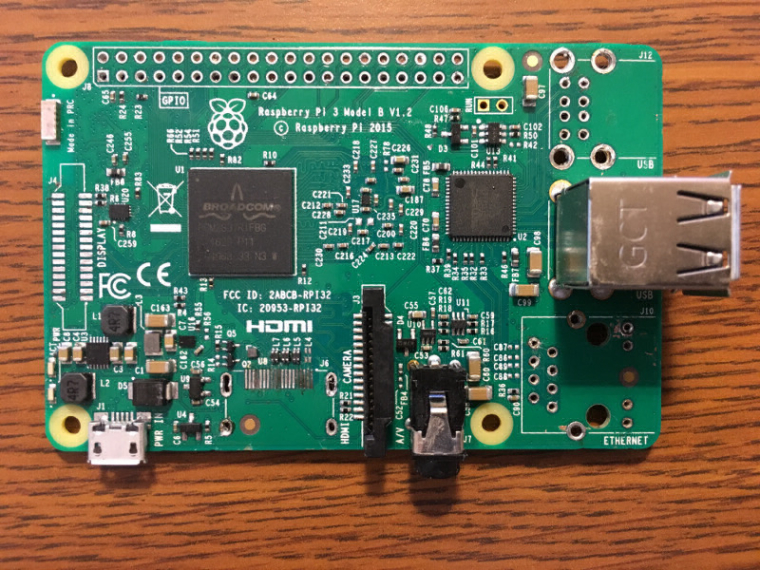
The good news is that the Pi still works. I left it run Street Fighter Alpha 3 and StarFox 2 for a few hours, plugged into a 1A iPhone charger (to test the theory that you can power it with a PowerBoost 1000C), with a 2500mAh LiPo sitting directly on the SOC and nothing got too hot, the battery or the chip.
Progress!
-
I think this is going to work.
This morning I removed the rest of the ports aside from the power port (I'm not sure if I'll need to remove it yet, it's not much higher than some of the capacitors near it, but it's at the edge, so we'll see.
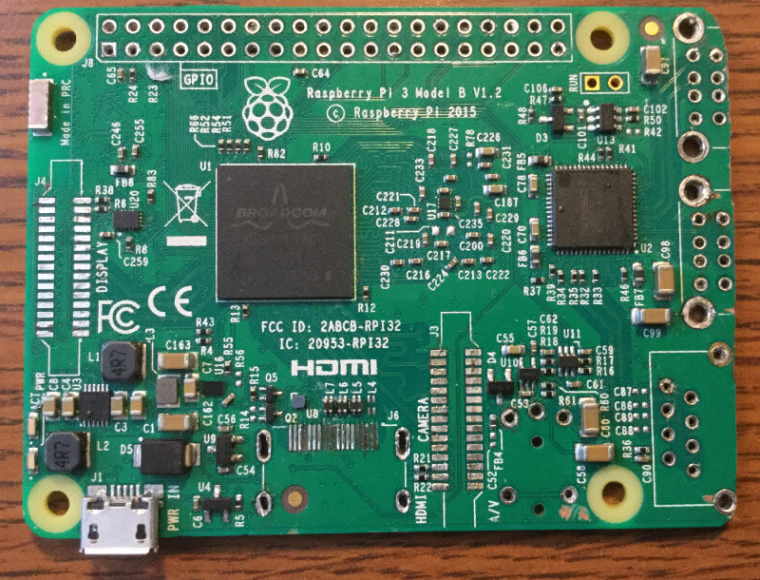
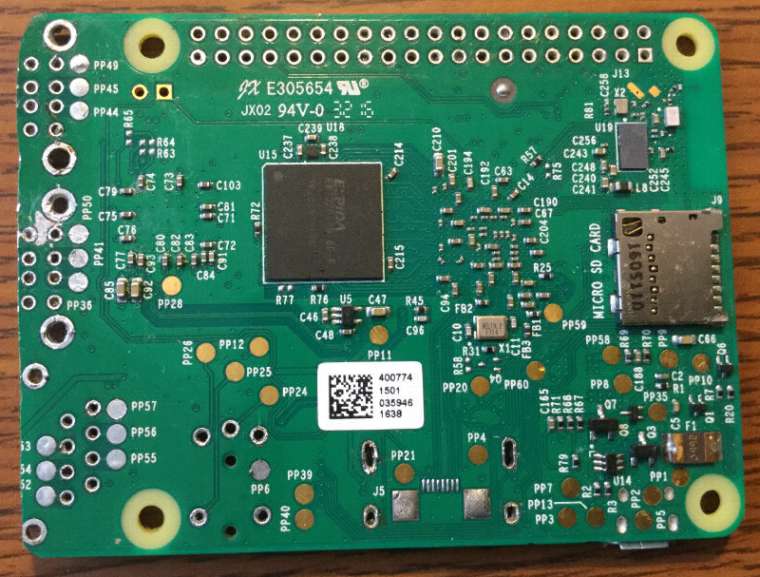
I readily admit that I am a hack and that this could have been done more neatly, but this was my first time trying to strip down a board and keep it functional. And, it is!
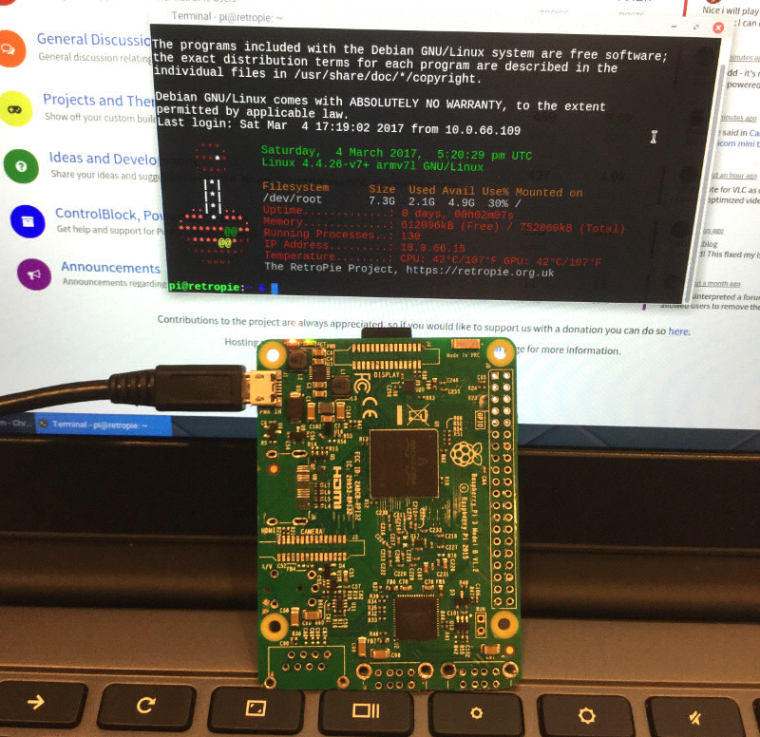
Why was I trying to do this? Well, based on my earlier mockups with some cardboard, I figured that if I could turn the pi sideways, trim the edge under the USB ports, and use a game cartridge to cover the sticky-outy bit, it'd fit.
A quick mockup with the screen, 2500mAh battery, and cut down Pi make it look like this will work. I should have more room inside once I redo the ribbon cable I soldered to the screen board.
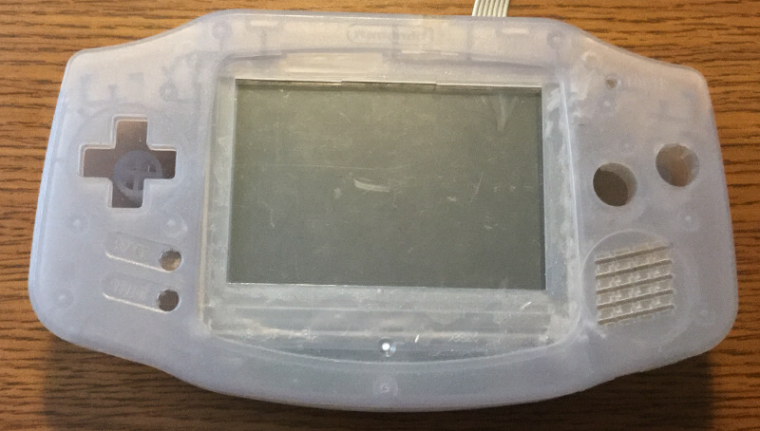
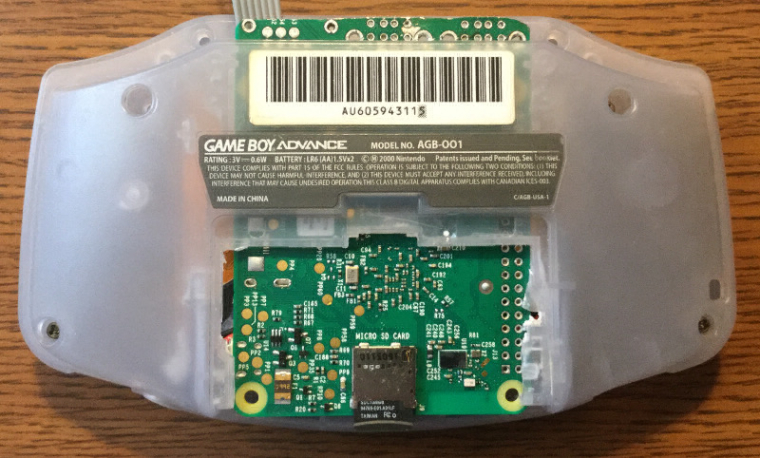

And, as @backstander requested, a GIF of the components disappearing. ;)
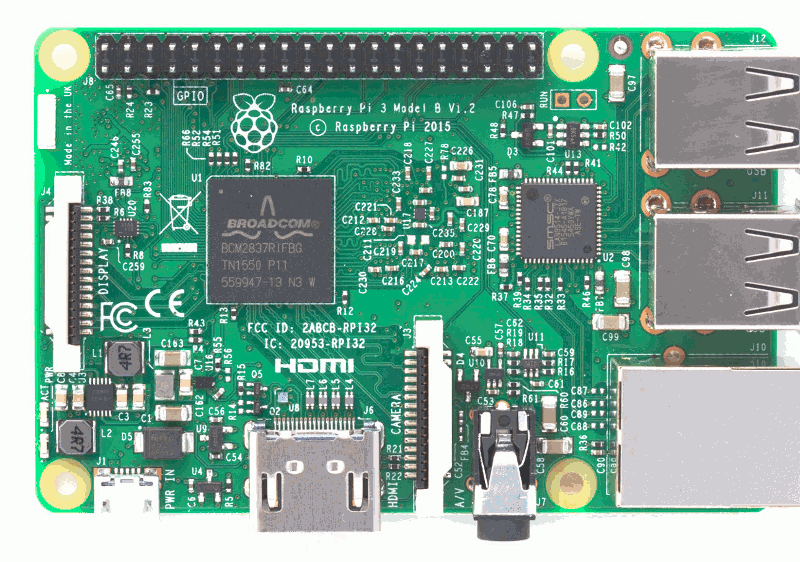
-
@obsidianspider hahahaha love the gif! I bet you could cut a bit more off the end with the USB and ethernet ports
Contributions to the project are always appreciated, so if you would like to support us with a donation you can do so here.
Hosting provided by Mythic-Beasts. See the Hosting Information page for more information.
